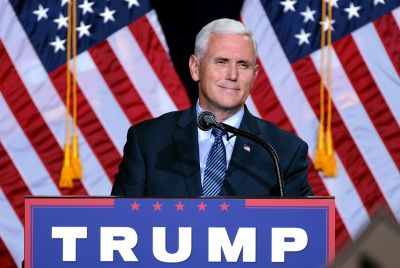Analysis: Politics cushion China's economic hard landing risks
The politics of China's need for a smooth leadership succession this year provide the best protection against a hard economic landing, regardless of stuttering exports, faltering capital flows, local government debts and lingering inflation risks.
By the time President Hu Jintao and Premier Wen Jiabao are handing over power in the late autumn, China should be well on course for its slowest full year of growth since they took office a decade ago -- and that's without any economic shocks.
It's not an auspicious bequest in a system that relies on stability to justify the one-party rule of the Communist Party and is precisely why any significant threats to the economy will be met with an unmistakable policy response.
That is the only line of thinking, Paul Markowski, President of New York-based MES Advisers, a long-time investment adviser to China's monetary authorities, told Reuters.
While financial risks abound, the composition of debt ownership means the government can brush off hard hits for now, he said.
Government debt is 26.9 percent of gross domestic product according to IMF data, well below the 60 percent seen as the international threshold for stable state finances, and 2011 fiscal revenue was a record-breaking 10.37 trillion yuan ($1.64 trillion) that produced a tiny 1.1 percent of GDP deficit.
Even allowing for the bad debts in the $1.7 trillion owed by local governments, the $200 billion or so of non-performing loans analysts believe the big state-backed banks are nursing, and any other miscellaneous restructuring costs, the most gloomy forecasts barely get gross debt up above 60 percent.
That said, there are few signs of willingness to repeat the 4 trillion yuan stimulus unveiled in 2008/09 at the height of the global financial crisis as international trade, on which much of China's growth and employment depends, froze.
The government's mantra has been about fine tuning economic policies -- tweaking taxes, cutting red tape and gently easing the required ratio of reserves (RRR) banks must maintain to keep money supply growth steady against a backdrop of fluctuating international capital flows.
CURRENCY FLOWS MIS-READ
Bank of America/Merrill Lynch China economist, Ting Lu, says flow risks are overstated as analysts mis-read monthly foreign exchange transaction data and fail to take into account the impact on currency purchases of China's concerted efforts to expand the use of yuan for international trade settlement.
Lu says there is no need for aggressive RRR moves and he forecasts a below-consensus two 50 basis point cuts by year end.
But the political implications of a 50 bps RRR cut to 20.5 percent on February 18, two weeks before China's annual meeting of parliament when the next budget will be announced, should not be underestimated, said Yao Wei, China economist with Societe Generale in Hong Kong.
The timing of the move may signal more fiscal easing measures at the annual National People's Congress in early March, which is also in line with our initial expectations, Yao wrote in a client note.
Quite what the government might unveil is anybody's guess.
The complication surrounding China's economic policy stems from the fact that the Chinese government still controls many aspects of the economy. You would not find so many policy parameters that can be constantly tuned to influence the trajectory of economic growth in advanced economies, she wrote.
Already 2 trillion yuan is earmarked to build millions of affordable homes in coming years to offset risks from a policy-induced cooling in the private sector real estate market, where a frenzy of speculation was triggered by the 2008/09 stimulus.
Fraser Howie, chief executive of brokerage CLSA Singapore and author of a new book on China, Red Capitalism, believes the last stimulus plan highlights Beijing's willingness to act and the risks it breeds.
There are no miracles in China. They haven't beaten the laws of economics, Howie told Reuters. What they did was take a problem that even today is still insoluble for them -- which was 20 million unemployed workers -- and they substituted that for a bad debt problem somewhere down the road.
EXPORT ANXIETY
It also helps explain why hard landing fear lingers, especially given an external sector slowdown.
Exports were a net drag on economic growth in 2011, which hit a 2-1/2 year low of 8.9 percent on the year in Q4, as the European Union -- China's biggest export market -- fought debt crisis demons.
But some analysts say export anxiety is misplaced.
Although nearly half of all Chinese exports are destined for the euro area, fully a quarter of that goes to Germany -- the strongest economy in the region, analysts at Lloyds Bank Corporate Markets in London wrote in a note to clients.
Official trade data shows China's combined exports to the troubled economies of Portugal, Ireland, Italy, Greece and Spain were $62.3 billion in 2011, less than one percent of GDP. Exports to Germany were $76.4 billion.
Meanwhile, there's solid demand from developing economies which the World Bank estimates have contributed as much as 70 percent of the growth in global imports in the last five years.
Capital flight arguments don't make sense to Carl Weinberg, chief economist at New York-based consultancy High Frequency Economics, who can't understand why foreign investors would flee China given still-steady yuan appreciation and risks elsewhere.
Even if China's GDP slows this year -- which we doubt -- it will still grow faster than any other major economy in the world. Huge real rates of return on capital are all but assured. China remains a safe haven from euro land's woes. We doubt investors will abandon it, he wrote in a note to clients.
(Reporting by Nick Edwards; Editing by Mathew Veedon)





















